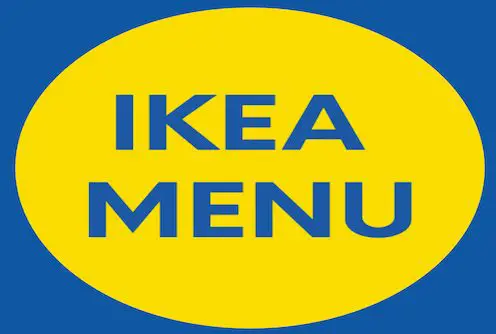Ensuring infants receive the right nutrition for their growth and development is an important task that requires careful consideration. One of the top decisions parents face is choosing the best formula for the particular dietary needs of their child. Kirkland Baby Formula, known for its cost-effectiveness and nutritional quality, is a viable contender in the market. In order to make well-informed decisions, an understanding of infant nutrition needs, a comprehensive review of what Kirkland Baby Formula offers and a close comparison of this product with other leading brands is a valuable exercise. This discussion will help parents and caregivers make more informed choices tailored to their baby’s specific needs.
Understanding Infant Nutrition Needs
Understanding Infant Nutritional Needs
The first months and years of an infant’s life are critically important for their growth and development. During this time, they need the right balance of nutrients to ensure proper brain development, healthy physical growth, and a strong immune system. This includes vitamins such as A, C, D, and E, as well as minerals like iron, zinc, and calcium.
On top of these essential nutrients, infants also require a good balance of proteins, fats, and carbohydrates for energy and development. Indeed, protein plays a crucial role, facilitating the growth of tissues and the production of antibodies that help fight infections. Fats, particularly omega-3 fatty acids, aid in brain development. Carbohydrates, on the other hand, are the infant’s primary source of energy.
Analyzing Kirkland Baby Formula
Kirkland baby formula is Costco’s store brand of infant formula. It is touted for meeting the nutritional guidelines established by the U.S. Food and Drug Administration (FDA), which makes it a compelling choice for many parents.
This product balances a rich assortment of nutrients designed to mimic those found in breast milk. It includes DHA and ARA, types of fatty acids found naturally in breast milk, that support brain and eye development. It also features prebiotics to support a healthy gut, lutein for eye health, and nucleotides that support the infant’s immune system.
Kirkland baby formula also manages to meet the metabolic needs of growing infants by providing an ample amount of vitamins and minerals. The formula includes iron, a mineral essential for producing healthy red blood cells that deliver oxygen to the baby’s tissues and organs.
Analyzing Kirkland Baby Formula Against Other Brands
The composition of Kirkland baby formula is quite similar to that of many other reputable brands. Some parents have even suggested that it’s on par with more expensive alternatives from brands such as Similac and Enfamil.
However, as with any infant formula, how well Kirkland’s sits with your baby will depend on their individual needs and constitution. For instance, some babies might have allergies or sensitivities to certain components in the formula, such as lactose or cow’s milk protein, and hence may require a specialized formula.
Summing it Up: The Advantages and Disadvantages
Upon evaluation, Kirkland baby formula emerges as a viable option for the majority of infants, granted they don’t possess distinct dietary requirements necessitating a specialized formula. It checks all nutritional boxes, meeting or even surpassing the FDA’s guidelines. Moreover, it’s usually significantly more cost-effective than similar formula brands.
However, it’s crucial to bear in mind that every infant is unique, and may thus react variably to the same formula. Therefore, it’s critical to diligently observe your child’s responses to any new formula, and seek advice from a pediatrician or a nutritionist to ensure the specific nutritional needs of your baby are being fulfilled.

Introduction to Kirkland Baby Formula
Behind the Brand: Costco Wholesale Corporation
The Kirkland Baby Formula is a product of Costco Wholesale Corporation. This multinational corporation, based in America, operates an exclusive chain of membership-only warehouse clubs and stands as one of the biggest retailers worldwide. It leads its operations from its headquarters in Issaquah, Washington, not far from Seattle.
Kirkland Baby Formula: A Trusted Brand on the Market
The Kirkland Baby Formula has been in the market for over two decades and has gained a reputation as a quality, affordable option for parents. It’s regarded as a reliable competitor to more expensive, well-known baby formula brands. The general imprint is that it provides excellent value for the cost without compromising the nutritional needs of infants.
Types of Kirkland Baby Formulas
Kirkland Signature ProCare Non-GMO Infant Formula
This infant formula is meant for babies from birth to twelve months. It contains a blend of nutrients that mirrors breast milk, such as DHA, Lutein, Vitamin E, and a prebiotics blend to support growth and the immune system.
Kirkland Signature ProSensitive Non-GMO Infant Formula
Designed for infants with sensitive tummies, Kirkland ProSensitive is a non-GMO formula that features partially hydrolyzed whey protein for easier digestion. It contains DHA, Lutein, Vitamin E, and a prebiotics blend for a balanced nutrition profile.
Kirkland Signature Non-GMO Soy Infant Formula
An alternative for parents looking for strictly plant-based formulas, this soy-based formula meets the nutritional needs of infants who are intolerant to lactose or have special dietary considerations.
Kirkland Baby Formula: Nutritional Content
The nutritional content of Kirkland Baby Formula matches that of more premium brands, meeting all recommendations of the American Academy of Pediatrics. All Kirkland formulas feature DHA and ARA to support brain and eye development, Lutein for eye health, prebiotics for immunity, and essential vitamins and minerals ensuring healthy growth.
Understanding the Reviews and Safety of Kirkland Baby Formula
Kirkland Baby Formula is often praised for its affordability, user-friendliness, and nutrient-rich recipe by many parents who use this product for their infants.
With regards to safety measures, available information indicates that Kirkland Baby Formula complies with or in some cases even surpasses, the regulatory standards for infant formulas set by the U.S. FDA. This essentially means that it’s a safe pick for your infant’s nutritional needs.
However, it’s significant to note that choosing the right baby formula is an individual choice that’s contingent upon several aspects like the unique nutritional needs and tolerance level of your baby. Even though Kirkland Baby Formula comes with several beneficial features, it might not be the best fit for every infant. Therefore, it’s always a wise approach to consult healthcare experts for their advice whenever making such vital choices.

Review of Kirkland Baby Formula’s Nutritional Components
Decoding the Nutritional Content and Ingredients of Kirkland Baby Formula
Starting with the basics, Kirkland Baby Formula is especially curated to deliver all the crucial nutrients required for the healthy growth and development of an infant. This formula contains carefully chosen ingredients such as nonfat milk, lactose, high oleic safflower oil, soy oil, and coconut oil to ensure premium nutrition for infants.
The primary carbohydrate used in Kirkland Baby Formula, lactose, is also found in breast milk, making it indispensable for energy production and the development of the brain. Furthermore, the blend of various oils contributes to a balanced supply of essential fats, including omega-3 and omega-6 fatty acids that a baby’s body demands for the development of the brain and eyes.
Kirkland Baby Formula versus Infant Nutritional Needs
A typical infant requires a balance of proteins, carbohydrates, fats, vitamins, and minerals for healthy growth and development. Kirkland Baby Formula is fortified to meet these needs. It includes 2.07 grams of protein per serving, which is similar to the protein content in breast milk.
It also contains a blend of vitamins and minerals, such as iron, calcium, Vitamin D, and Vitamin E among others, which fulfill an infant’s daily nutritional needs. It is crucial to note that these elements have been carefully chosen keeping in mind the American Academy of Pediatrics’ recommendations for infant nutrition.
There is also an added prebiotic dietary fiber, which helps promote healthy gut bacteria – a key factor in overall health.
Contemplating Allergenic Components
While Kirkland Baby Formula is designed for an infant’s maximum benefit, it is necessary to consider potential allergenic ingredients. The formula does contain milk and soy based ingredients. Parents of infants who are lactose intolerant or have soy allergies need to consider this before choosing this formula.
It is also essential to note that Kirkland Baby Formula contains DHA and ARA, which are synthetic versions of the essential fatty acids found in breast milk. Some parents may prefer a formula without these additions due to the controversy regarding the use of hexane in extracting these oils. However, it is important to mention that the amounts used are generally recognized as safe by the U.S. Food and Drug Administration.
An Overview of Kirkland Baby Formula
With its aim of closely matching the nutritional content found in breast milk, Kirkland Baby Formula offers a balanced blend of critical vitamins, minerals, and fats, designed to promote comprehensive infant nutrition. This makes it a potentially suitable dietary supplement for your baby.
However, it’s key to remember that each baby has unique nutritional requirements and varying tolerance levels towards different food types. Therefore, consulting with your pediatrician before initiating or switching to a new formula is highly essential. Monitoring your baby’s response to a new formula is also crucial to ascertain its suitability.

Photo by leladesign on Unsplash
Comparing Kirkland Baby Formula to Other Brands
Financial Analysis: Kirkland Baby Formula Versus Leading Brands
One of the notable advantages of Kirkland Baby Formula is its affordability. Compared to well-known brands like Enfamil, Similac, and Gerber, Kirkland’s formula can cost about half as much. Given this significant price difference, families could find substantial savings over the feeding period of 12 months. For parents mindful of their budget, Kirkland Baby Formula can be an economically sound choice.
Nutrient Components: Comparative Analysis
In terms of nutrition, Kirkland Baby Formula can readily compete with the more renowned baby formula brands. It contains all the essential nutrients needed for the healthy growth and development of the infant. Its ingredients list comprises critical elements like DHA, Lutein, and Vitamin E, which are crucial for the baby’s brain and eye development. These components are also found in the more costly brands.
Kirkland’s formula also contains prebiotics that support digestive health by aiding in the growth of beneficial gut bacteria, also known as probiotics. Prebiotics are a standard feature in most exclusive baby formula brands, demonstrating that Kirkland provides equal nutritional value even at its aggressive price point.
However, some critics point out that Kirkland Baby Formula uses a corn syrup derivative as the carbohydrate source, rather than lactose found in breast milk or high-end formula brands. While this doesn’t necessarily undermine the formula’s nutritional value, some parents may desire a more natural sugar source for their babies.
Evaluating Consumer Satisfaction
Kirkland Baby Formula consistently receives positive feedback from a majority of its users, earning praise for both its affordability and its nutritional value. However, it’s crucial to remember each infant’s digestive system is distinctive, meaning what suits one, might not suit another. For instance, while some babies easily digest Kirkland Baby Formula, others may suffer from gas, spit-ups, or constipation.
Many elements should be considered by parents when determining if Kirkland Baby Formula is the appropriate choice for their infant. These factors consist of coverage, nutritional components, and the reaction of their infant to the formula. The best advice is to consult with a healthcare provider before making significant alterations to an infant’s feeding routine.

Advantages and Concerns about Kirkland Baby Formula
Understanding Kirkland Baby Formula’s Cost-Effectiveness
Choosing Kirkland Baby Formula for your little one presents an advantageous financial benefit. When compared to high-end options, Kirkland Baby Formula extends similar nutritional benefits at a fraction of the price. This budget-friendly formula proves to be an excellent selection for families on a strict budget, without compromising the baby’s essential nutritional requirements.
Nutritional Content of Kirkland Baby Formula
Another important factor to consider is the nutritional content of the baby formula. Kirkland Baby Formula is designed to mirror the nutritional components of breast milk closely. It boasts of a full range of vitamins, minerals, and essential fatty acids such as DHA and ARA, which are crucial for the baby’s brain and eye development. It is also enhanced with prebiotics and probiotics, which contribute to a healthier gut and improved immunity in infants.
Production Standard and Safety of Kirkland Baby Formula
Concerns about safety and production standards are pragmatic when choosing a baby formula. Kirkland Baby Formula is notable for its rigorous production processes, meeting or exceeding all FDA standards for infant formula. The ingredients used in this formula are carefully sourced, ensuring that your baby receives nutrition from safe, high-quality ingredients.
Potential Issues with Kirkland Baby Formula
Despite the various positives, some potential drawbacks need to be addressed. Some parents have reported that their babies experienced gassiness and constipation after consuming Kirkland Baby Formula. It’s essential to note, however, that every baby’s reaction to different formulas can vary. These issues may not be specific to this brand only and may disappear as the baby’s digestion system matures.
Allergic Reactions to Kirkland Baby Formula
Allergic reactions or sensitivities to baby formulas are also a potential concern among parents. Kirkland Baby Formula contains cow’s milk proteins, lactose, and soy-based ingredients. These are common allergens and could trigger an allergy in some infants. If your infant has known allergies or dietary restrictions, it’s advised to consult with a healthcare professional before introducing this or any new formula.
In light of these considerations
while Kirkland Baby Formula offers cost-effectiveness, high nutritional value, and safety standards, it’s crucial to monitor your baby’s personal response to it. Any changes in behavior, digestion, or skin conditions after introducing a new formula should be communicated with your child’s pediatrician.

After a detailed discussion on infant nutrition needs, exploring Kirkland Baby Formula, its nutritional components and stacking it up against its competitors, a well-rounded understanding of its suitability for an infant’s dietary needs has been attained. Each infant formula product has its unique strengths and potential drawbacks. The Kirkland Baby Formula holds its ground in being cost-effective, offering a robust bundle of nutrients necessary for an infant’s growth. However, it’s integral to keep in mind that nutrition needs may vary from child to child. Therefore, it is advisable to consult with a frequent pediatric healthcare provider before making any substantial changes to an infant’s diet or introducing a new diet regimen.


